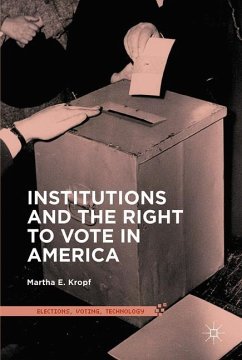
Pluralism and American Public Education
No One Way to School
Versandkostenfrei!
Versandfertig in 6-10 Tagen
38,99 €
inkl. MwSt.
Weitere Ausgaben:

PAYBACK Punkte
19 °P sammeln!
This book argues that the structure of public education is a key factor in the failure of America's public education system to fulfill the intellectual, civic, and moral aims for which it was created. The book challenges the philosophical basis for the traditional common school model and defends the educational pluralism that most liberal democracies enjoy. Berner provides a unique theoretical pathway that is neither libertarian nor state-focused and a pragmatic pathway that avoids the winner-takes-all approach of many contemporary debates about education. For the first time in nearly one hund...
This book argues that the structure of public education is a key factor in the failure of America's public education system to fulfill the intellectual, civic, and moral aims for which it was created. The book challenges the philosophical basis for the traditional common school model and defends the educational pluralism that most liberal democracies enjoy. Berner provides a unique theoretical pathway that is neither libertarian nor state-focused and a pragmatic pathway that avoids the winner-takes-all approach of many contemporary debates about education. For the first time in nearly one hundred fifty years, changing the underlying structure of America's public education system is both plausible and possible, and this book attempts to set out why and how.














